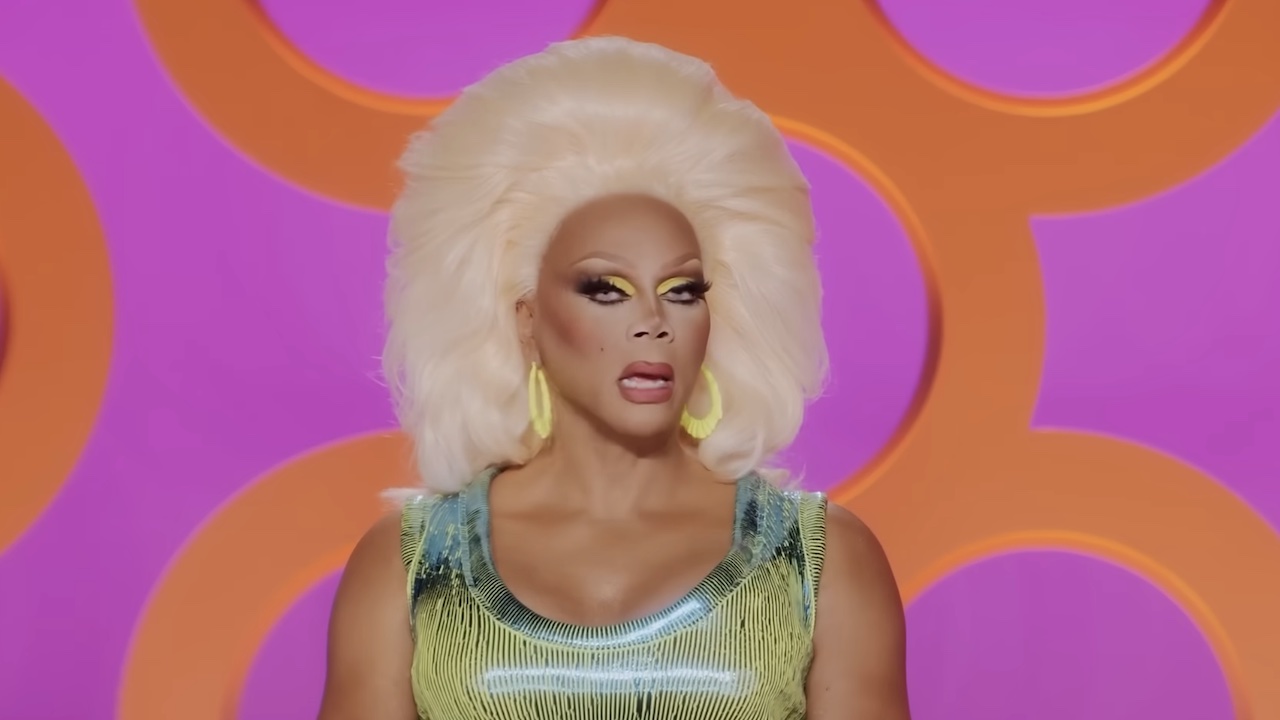I've Been Thinking About Hollywood Icon Elizabeth Taylor Lately, And Most Notably Her Role In 1956's Giant
A movie from the true golden age of Hollywood.
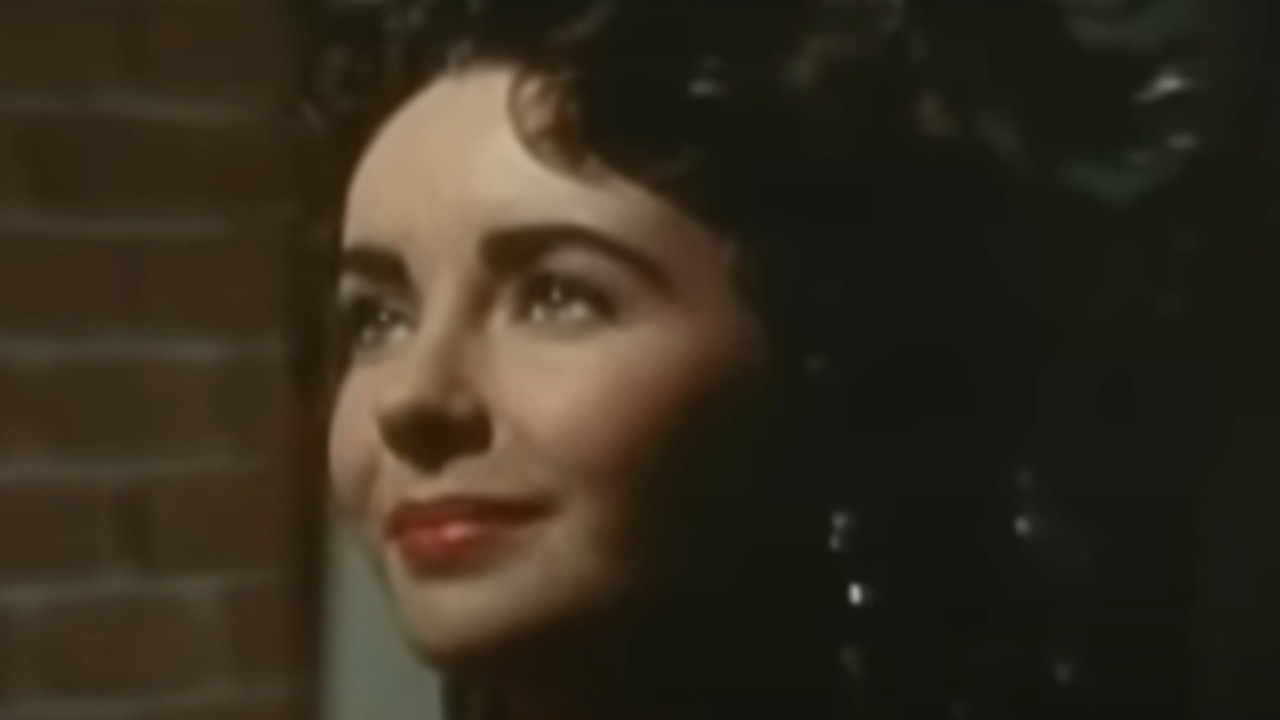
Your Daily Blend of Entertainment News
You are now subscribed
Your newsletter sign-up was successful
Do you know what “Old Hollywood” is? Basically, it spanned from the late ‘20s to the early ‘60s, and the 1956 movie, Giant, which stars Elizabeth Taylor, Rock Hudson, and James Dean, is often considered to be at the tail end of the era.
Now, a lot of these classic movies are in black and white, but not all of them, and the epic, Giant, is an exception. It's the story of a prominent Texas cattle man (Hudson) and his wife (Taylor) dealing with a reckless oil man (Dean), and the trials and tribulations involved. It’s a sprawling story based on the 1952 novel of the same name by Edna Ferber.
It’s a towering achievement of a film, but I mainly want to focus on Taylor’s role in the story, and also how progressive the movie was for 1956.
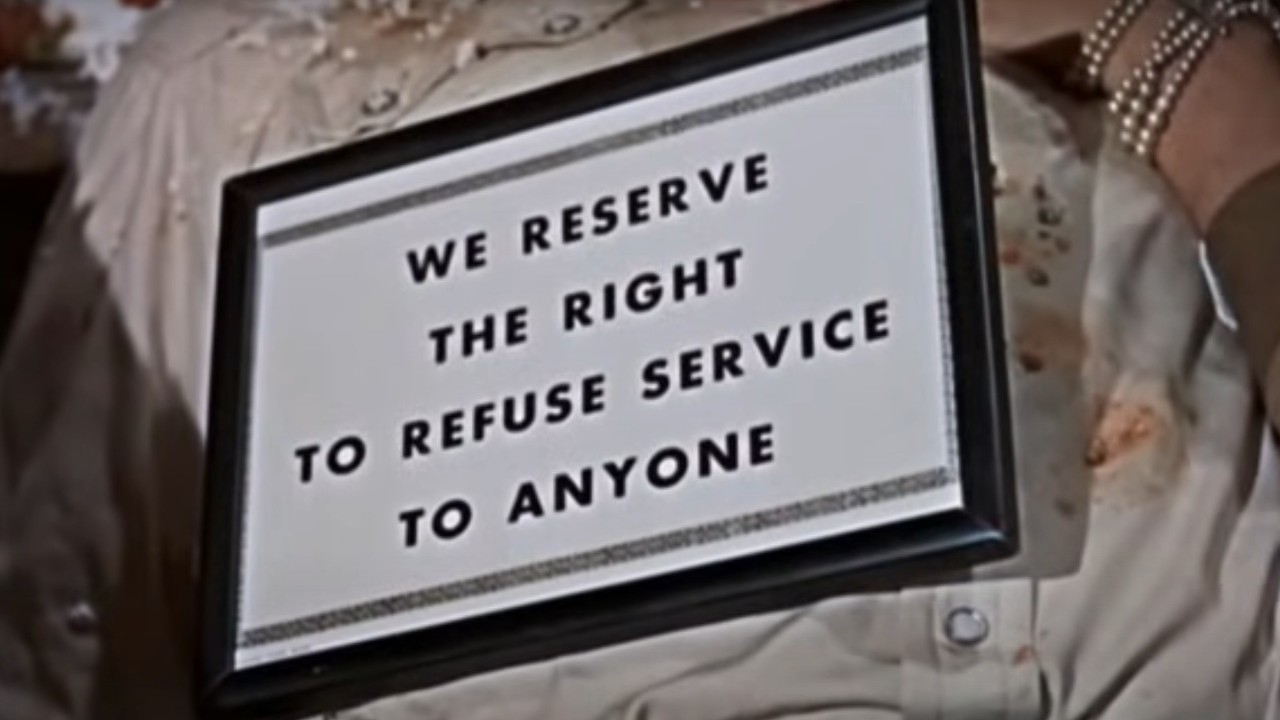
Giant Has A Subplot About Racial Discrimination Against Hispanics, And Why That’s Not Okay
Would I consider Giant a social justice movie? No, not really, as a lot of its 201-minute runtime is about the contentious relationship between a cattle baron and an oil man. That said, it really kind of is a social justice film, since there’s an undercurrent of racism against Mexican Americans that runs through it, and why it’s not okay.
Elizabeth Taylor plays a socialite named Leslie Lynnton, and she falls in love with a man from Texas who is purchasing a horse in Maryland. That man is Jordan “Bick” Benedict, and Rock Hudson plays him. They get married and return to Texas, and Leslie (Now Leslie Benedict) realizes that it’s hella racist there.
While touring the property with ranch hand, Jett Rink (James Dean), she sees how poorly the Hispanics are treated, and goes back to her husband to tell him to fix it. Her husband, who is a little racist himself, feels icky about it since it involves using their family doctor. So, they get a Hispanic doctor to help him.
Long story short, Bick and Leslie have children, and their son, Jordy (played by Hollywood legend Dennis Hopper), marries the daughter of the doctor who treated the Hispanic baby earlier, forming an interracial relationship and having children together, which leads me to my next point.
Your Daily Blend of Entertainment News
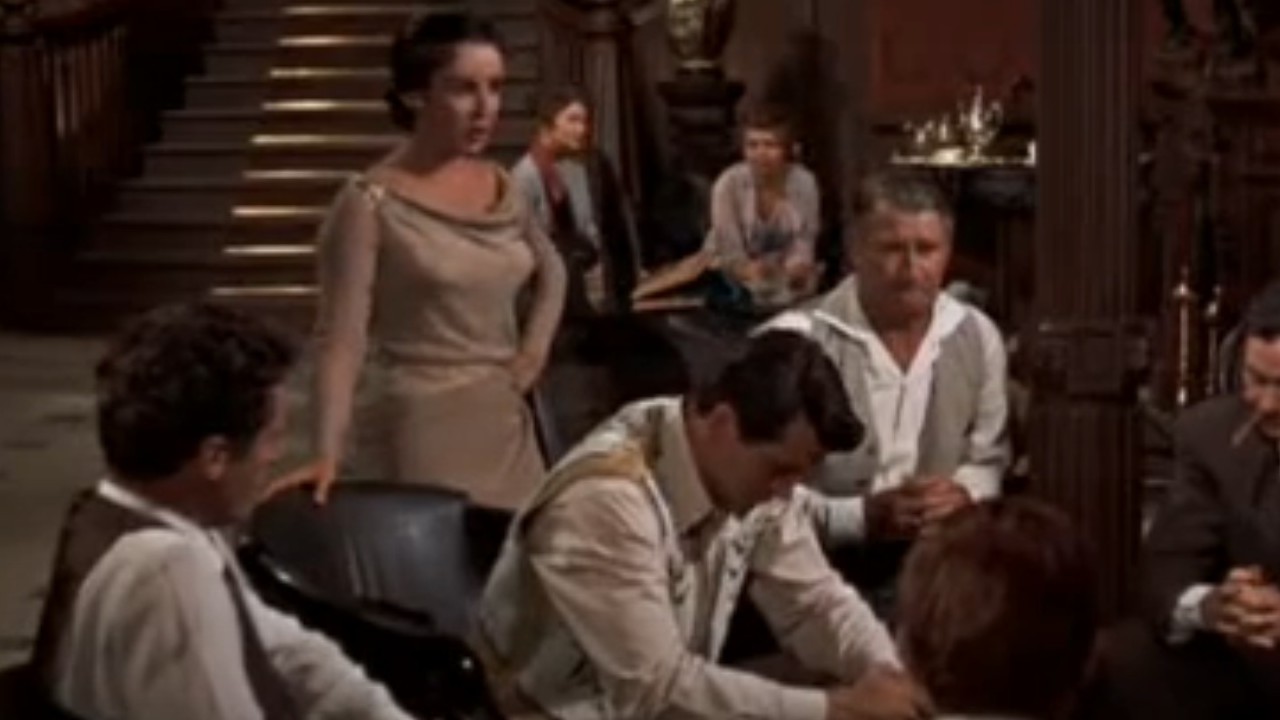
Elizabeth Taylor’s Character, Leslie, Is Trying Her Best To Help The Hispanic Population
As I mentioned earlier, Taylor’s character, Leslie, is quite upset when she sees how the Hispanics are treated in Texas, and she goes to her husband to fix it.
Now, Hudson’s character, Bick, is a good guy. At least, we’re supposed to root for him, and we do when it comes to the story of Jett trying to make a cuckold out of him. Jett, you see, is in love with Leslie, and early on, he’s constantly trying to get her to leave her husband, and we don’t want this to happen, because even though James Dean is dreamy, he also has his issues, and again, we want her to stay with Bick.
However, the main reason we like Leslie is that she is not okay with how Hispanics are being treated on her husband’s ranch. When she tried to get medical help for a Hispanic child, that took guts. She saw that her husband was uncomfortable with it, but she pushed for it anyway.
Plus, when her son and his Hispanic wife have a child, she’s cool with it. She welcomes the child into the family, and by the end of the film, she’s a grandmother to one white child and one Hispanic child. And, as a man in an interracial marriage myself, this all resonates with me. Giant is about a lot of things, but it’s also about accepting others, and Elizabeth Taylor is the heart of this movie.
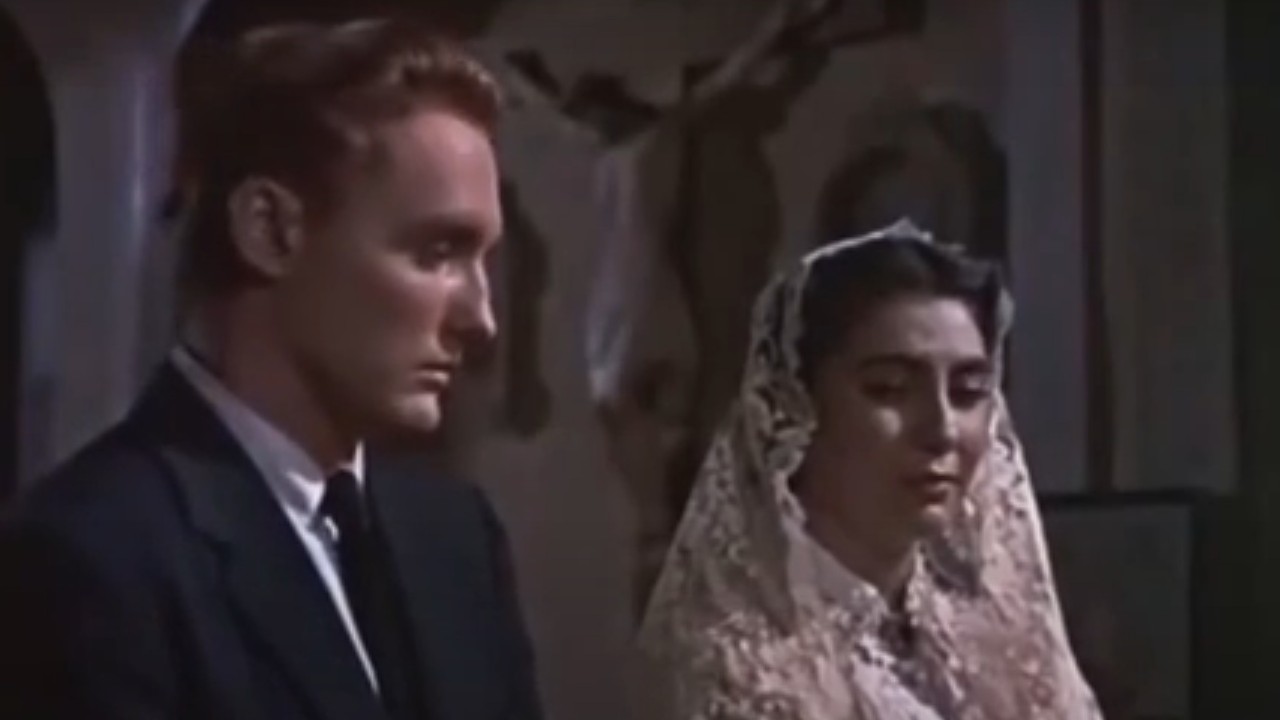
We Also Get To See How Texas Has Been A Home To Hispanics For Years
Texas is a very interesting state. Since it shares a border with Mexico, there have been Mexicans living in Texas for literal centuries. Now, I don’t want to get into the whole history of how this came to be (just Wikipedia “History of Mexican Americans in Texas” if you’re interested), but what I will say is that for as long as Mexicans have been in Texas, there seems to have been a whiff of racism.
Now, since I don’t live in Texas myself, I can’t speak to how conditions are there currently (I assume better). But, if the movie Giant is any indication, things weren’t so hunky dory between whites and Hispanics in Texas from the 1920s to the 1950s, which is when this story takes place.
Hispanics are not allowed to be treated by white doctors, and we see that they are just kicked out of establishments. Late in the film, once Jett has become rich, he owns a hotel, and he demands that Hispanics not be served there.
Also, at the end of the movie, a racist diner owner kicks out a Hispanic family just because he reserves the right not to serve them. So, throughout the film, we see how Hispanics have been living in Texas for years, and mostly mistreated. However, at the end of the film, there’s hope…
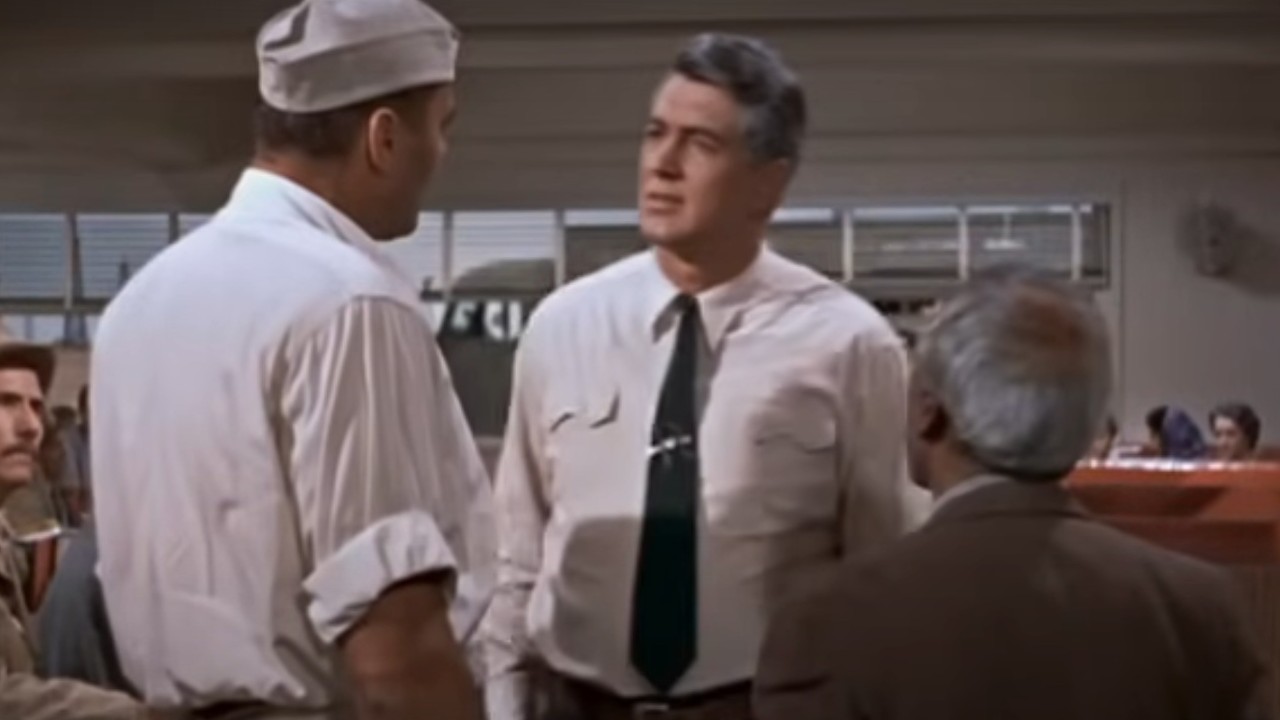
Rock Hudson Also Plays A Substantial Role In Standing Up For What’s Right
I love stories. One reason is that, unlike in reality, characters always have to grow. At the beginning of the film, our feelings toward Bick are kind of on the fence when he doesn’t want a Hispanic baby to be treated by the family doctor, but by the end of the film, he’s a changed man.
Hudson (who himself was gay) portrays a character who was secretly, maybe even subconsciously, hiding a piece of himself that he probably didn’t even realize until Taylor’s character came into his life. He didn’t really see himself as a racist, since that’s just how things went in Texas. The Mexican population was just seen as being beneath the white population.
However, throughout the film, he grows and becomes (Here it comes) “Woke.” And, I mean that as it’s meant to be taken – He starts to become aware of racial disparities. When his son marries a Mexican woman and they have children, he learns that these are actual people.
At the end of the film, he ends up physically fighting for a Hispanic family. And, even though he “loses,” he still wins the heart of his wife, since it shows that he’s learned to change. Is that a great arc or what?
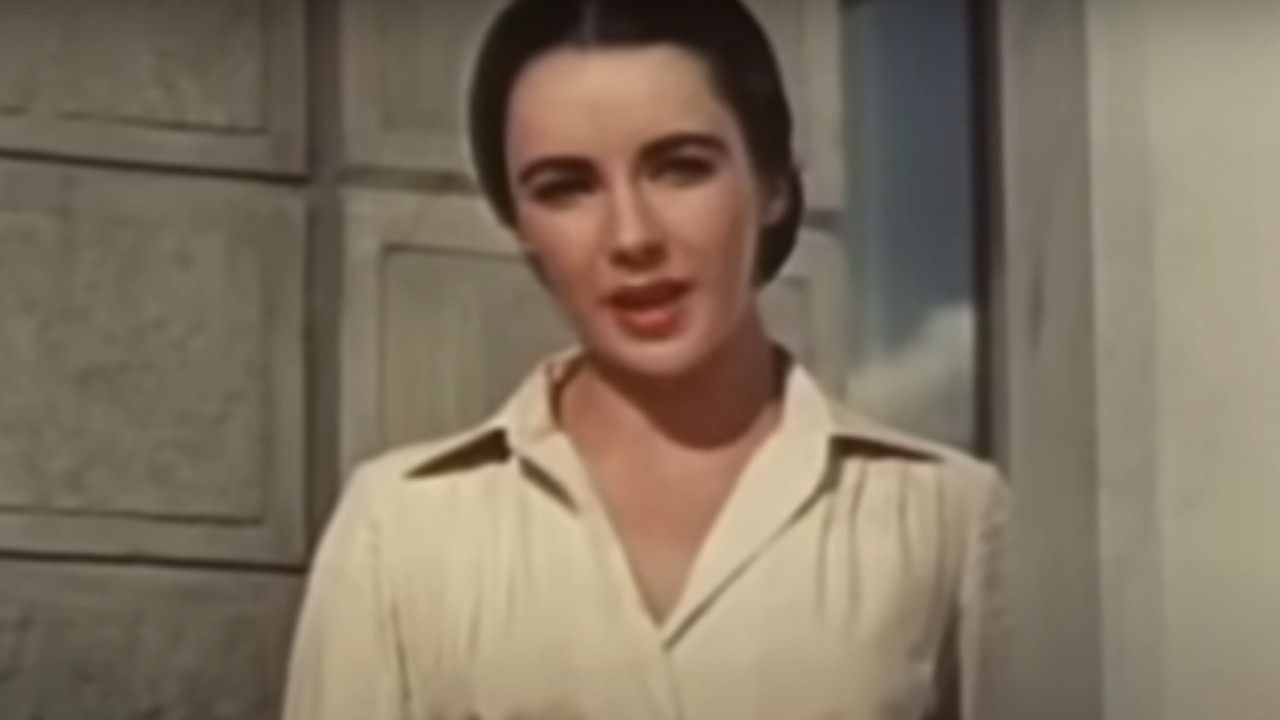
In The End, Giant Is A Magnificent Movie That Gets Better With A Rewatch
Honestly, Giant is a great old movie that doesn’t get talked about enough. And, yes, I get it. The movie is LONG. In fact, I have never watched the entire film in one sitting. I first watched it with Netflix’s DVD service (Remember that?) and then rented it again on Amazon, and it was upon this second viewing that I really caught the undercurrent of racism.
Again, this is a multilayered movie. I initially focused on the tempestuous relationship between Hudson and Dean’s characters throughout the years. But the film demands a rewatch, and it opens up even more for you when you view it again.
Now, I feel like the racial stuff is the linchpin of the entire film. The bad characters (Like Dean) stay racist, while the good characters (like Hudson) change. It’s all great, meaty stuff, and definitely worth a watch if you haven’t seen it already.
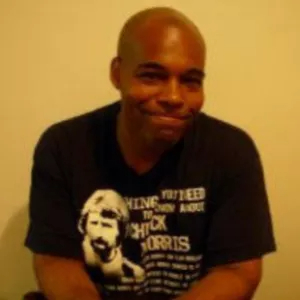
Rich is a Jersey boy, through and through. He graduated from Rutgers University (Go, R.U.!), and thinks the Garden State is the best state in the country. That said, he’ll take Chicago Deep Dish pizza over a New York slice any day of the week. Don’t hate. When he’s not watching his two kids, he’s usually working on a novel, watching vintage movies, or reading some obscure book.
You must confirm your public display name before commenting
Please logout and then login again, you will then be prompted to enter your display name.
